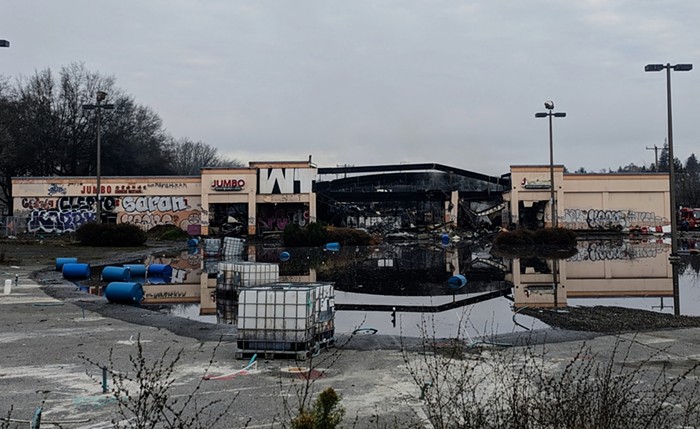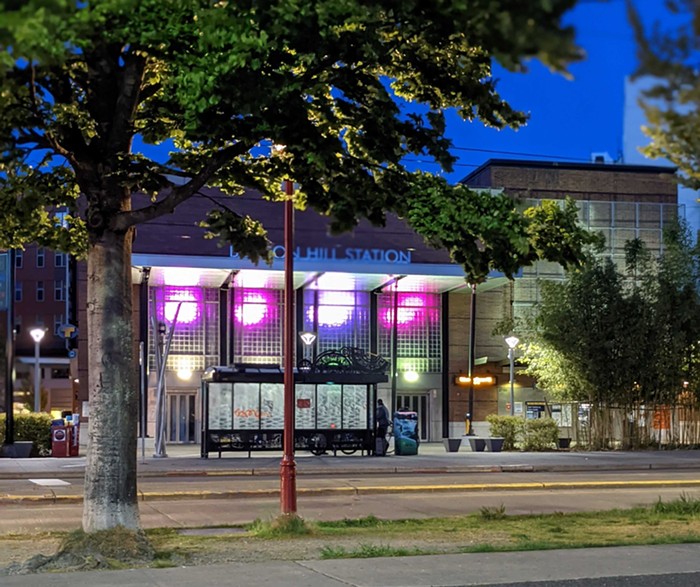
Welcome back to Maintenance Request, a regular column where you email me with your questions/sagas about renting in Seattle/King County and I try to get you answers. If you have a question, send it to me at heidi@thestranger.com. Ask me anything about bad landlords, finding a roommate, dealing with noisy neighbors, pets in apartments, etc. Anything about renting in the region. Please specify whether you’re in Seattle or elsewhere in Washington since the answer may vary based on your city’s laws. Remember, I’m not a lawyer. It’s always best to talk your situation over with a tenant advocate or a lawyer. You can find one using one of the services listed here. On to this week's questions:
I haven't been able to receive mail at my apartment for 9 months! We don't have a mailbox up to code and our mail carrier refuses to deliver. I've found there are no "rights" to mail delivery in Seattle/Washington. Is this true?
When it comes to mailbox law, I am an expert in whether refusing to check your mail for weeks because you're afraid of bills that you can't pay because you decided to "follow your dreams" and "get a job you believe in" will make you feel better about your debt. (The answer is yes.) But I didn't know whether landlords can refuse to give you a suitable place to get your mail, as yours has done. The answer was more complicated than I expected!
A spokesperson for the U.S. Postal Service told me, “landlords are required to provide approved, secure mailboxes for their tenants.” But it's not that simple. Washington state and City of Seattle law concerning landlord duties doesn't specifically list a requirement to provide mailboxes. So, you're mostly right that there is no “right” to mail. But tenant advocates and the Seattle Department of Construction and Inspections say you may still be able to do something about this problem.
Since your landlord was at some point providing mailboxes and hasn’t kept them up to code, your shitty mailbox may be considered a repair the landlord has to address. State law requires most repairs to be fixed within 10 days. You can use a letter like this to request the repair. (It’s best to send this by certified mail, if you can.)
If you're in Seattle and your landlord refuses to address this, file a complaint with the city here and an inspector will come take a look. If they find that your landlord isn't keeping your mailboxes up to code, they can require a repair.
If you report an un-permitted dwelling (for example a basement room without an emergency exit) what happens to both the landlord and the tenant?
For the unfamiliar, any apartment or other housing unit that wasn’t properly permitted or doesn’t follow zoning and safety rules is illegal. But the burden for converting the unit to something that is legal is (duh) on the landlord, not the tenant.
In Seattle, if the city gets a complaint about an illegal dwelling unit, an inspector from the Seattle Department of Construction and Inspections will go out there and check it out. If the unit is indeed not permitted, they’ll notify both the landlord and tenant and give the landlord the chance to bring the unit up to code. Whether it's even possible to bring it up to code may depend on some absolutely fascinating stuff wonkery like zoning. For instance, if the rental is in a single-family zone (21,000 acres of the city compared to just 7,000 acres zoned for apartment buildings and other multifamily housing!), it may not be possible to make any second unit legal (it’s almost like we should rezone to make room for more people!)
Anyway, several things can happen at that point:
• If the landlord can make the unit legal and chooses to go that route, they’ll work with the city on the plan and permits.
• If the landlord refuses to bring it up to code, the city may fine the landlord.
• If the landlord decides to stop renting out the unit and evicts the tenant, they have to pay the tenant two months of rent as relocation assistance or at least $2,000 if the tenant is low-income. The landlord must make that payment at least two weeks before the tenant has to move out. If a tenant decides to move out before receiving a formal notice from the landlord, they may not be entitled to receive relocation assistance (so, if you're a renter in this position, stay put for as long as you can!).
These types of situations can vary dramatically from case to case, according to the city's Department of Construction and Inspections, so it's best to call them if you have a specific question: (206) 615-0808.
My building on Capitol Hill recently switched from check payments to online rent payments. The online system requires a $1.95 fee no matter the method you use to pay (bank acct or CC). This doesn't seem like a legal thing to do. Isn't it effectively a rent increase if I have no choice but to pay it? Small issue I know but it just doesn't seem right.
The big question for you is whether you’re on a fixed-term lease (like six months or a year) or a month-to-month lease. Just like they can't change your rent in the middle of a lease, your landlord can’t change the way you pay that rent in the middle of a lease either. So, if your landlord added this fee in the middle of your year-long lease, for example, they fucked up. If you’re on a month-to-month lease, the landlord can add this sort of fee but they have to give you at least 30 days’ written notice. If your landlord violated these rules—if they added this fee in the middle of your fixed-term lease or added it on a month-to-month lease without a month’s notice—send them a letter like this.
The fee itself, though? There’s not much we can do about that. “Wouldn't it be amazing,” Tenants Union Deputy Director Kate Dunphy said when I asked her about your question, “if landlords who have chosen to use our basic human need for shelter as their business recognized that the cost of that business should come out of their profits instead of our pockets?”
Alas.
Have a question about renting? Email me: heidi@thestranger.com.

















